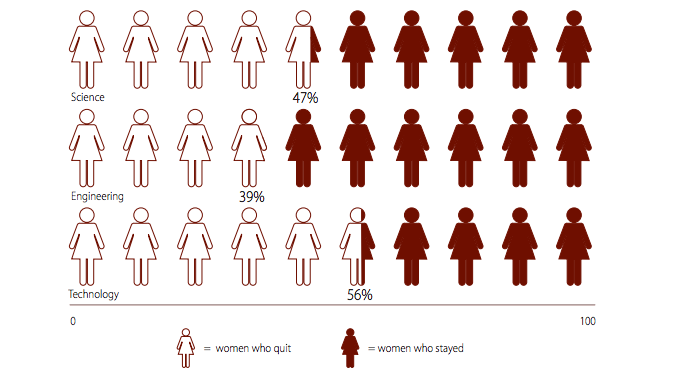Monty Is Wrong
Last Friday, at All Your Base 2014, MySQL creator Monty Widenius said some controversial stuff about women. There was a lot of backlash.
So Monty just went on stage at #ayb14 and said that women don't really "get" hacking.
Feel like I should get my coat...
— Lorna Mitchell (@lornajane)
October 17, 2014
Today, in an attempt to address the criticism, an interview was published in which Monty explained his views in more detail.
My personal feeling is that men get more easily obsessed with things, including computers. They forget their surroundings, neglect their families and friends. And I think that's more insulting to men than to women, who I think are better at combining work and having a life. This type of male obsession I find to be mostly a negative trait, even though single-minded focus on coding from the early teens, followed by 16 hour coding days at work, is what has enabled many successful pieces of software.
If anything, this statement makes matters worse. Instead of retracting and apologising for his generalisations, Monty has reiterated them and explained them in more detail. It's unclear why anybody would think this might make a good preamble for a heartfelt apology about their sexist remarks, but there you go. Anyway, here is why I think Monty is wrong.
In 2008, a report called The Athena Factor was published exploring the many reasons why women leave science, engineering and tech jobs at such a higher rate than men. It painted a damning picture of a male-dominated industry structured in a way that systematically disadvantages women at every turn. It's worth a read, but here's the most damning thing from it. It's a diagram illustrating the disproportionate rate of attrition among women in tech.

Right off the bat we're looking at a very different picture of the world than the one Monty describes. Rather than a simple pipeline problem (not enough women coming in), we're instead seeing women driven out of the industry at a worrying rate. In fact, the report even suggests that remarks like Monty's are a likely contributing factor to this the problem.
Another sobering finding is the degree to which women at SET companies believe that their male colleagues consider females to be intrinsically less capable. In engineering and technology, more than a quarter of female respondents feel they are seen as genetically disadvantaged in SET fields. When Larry Summers, then-president of Harvard University, talked about how women have a “different availability of aptitude” in his infamous speech of January 2005, he was perhaps merely giving voice to a standard view!
Some researchers are convinced that “the societal assumption that women are innately less able than men” is the foremost factor contributing to women's slow advance in SET careers
As well as driving away existing contributors, Monty's words also contribute to the very pipeline problem that they claim to explain. Remarks like these are a part of the oppressive framework that tells men and women that their lives have already been predetermined for them by their genetics, and that they should favour life choices that play to their “natural” strengths.
When women are obsessed, I find they tend to focus on social aspects, which is why there have been much more of an uptake in women in senior management, rather than among introverted, solitary hackers. (more questionable wisdom from the interview containing Monty's apology)
This is bullshit. It makes me angry to imagine some young woman who was at AYB or maybe read Monty's interview afterwards and is now questioning whether she's “obsessive enough” to contribute to open source projects or otherwise experience success in her software career. After all, if that really popular clever guy said it under the legitimising stage lights of a conference venue, couldn't it be true? We all suffer from the occasional bout of impostor syndrome. The last thing any of us needs is leading open source personalities telling anyone their gender makes them less obsessive and therefore less likely to create great stuff.
I do believe that there are obstacles for women who want to become big-time open source developers. But I believe that these obstacles are socially constructed and thus potentially fixable. Things like:
- Outdated social expectations about gender roles discourage young women from entering the field in the first place.
- Systematic oppression and harassment drives women out of the software industry at a rate something like twice that of men.
That's the final thing that I hate about this belief that the lack of women in software can be explained away by these “innate” differences: it absolves the believer of any responsibility to do anything about it. If it's predetermined by nature, then it's not your problem. Whereas if you dare to look at the issue as something humans can fix, you might even make a dent in it.
Monty says he feels bad to be thought of as a sexist. Unfortunately, if you believe in innate differences between men and women that make women less likely to succeed in software, then you fucking are a sexist. And you will stand alone as such because the rest of us will not be complicit in our silence.
